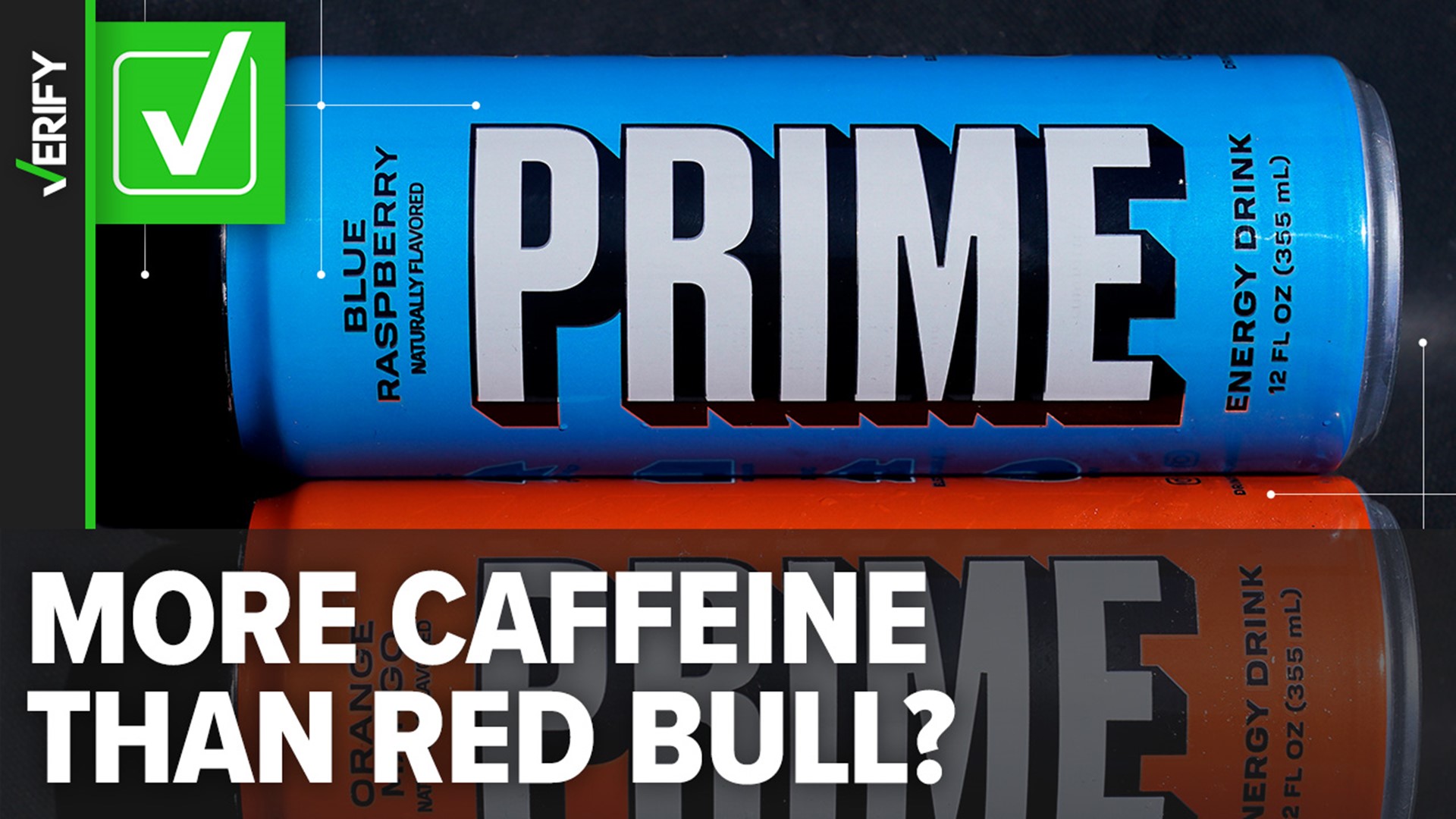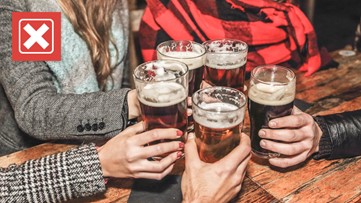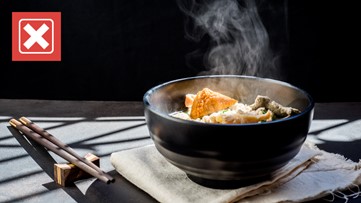On July 9, U.S. Sen. Charles Schumer (D-N.Y.) called on the Food and Drug Administration (FDA) to investigate PRIME, an influencer-backed energy drink founded by YouTube stars Logan Paul and Olajide “KSI” Olatunji, over its potentially dangerous levels of caffeine. Paul and Olatunji are popular with kids and young adults.
“One of the summer’s hottest status symbols for kids is not an outfit, or a toy — it’s a beverage,” said Schumer. “But buyers and parents beware because it’s a serious health concern for the kids it so feverishly targets.”
Some social media users claim one can of Prime contains nearly twice the amount of caffeine as a can of Red Bull. Recent online searches show that many people are wondering if that’s true.
THE QUESTION
Does a can of Prime contain more caffeine than a can of Red Bull?
THE SOURCES
THE ANSWER
Yes, a can of Prime contains more caffeine than a can of Red Bull.
WHAT WE FOUND
On Jan. 4, 2023, YouTube stars Logan Paul and KSI shared a video promoting PRIME on TikTok. In the video, Paul compares Prime energy drink and Red Bull side-by-side and says that one 12-ounce can of Prime contains 200 milligrams of caffeine while one 12-ounce can of Red Bull contains 114 milligrams of caffeine.
VERIFY found that Paul’s calculations are accurate.
On PRIME’s official website, it says that one 12-ounce can of Prime energy drink contains 200 milligrams of caffeine, zero grams of sugar and 300 milligrams of electrolytes. Those details are also printed on the energy drink’s can.

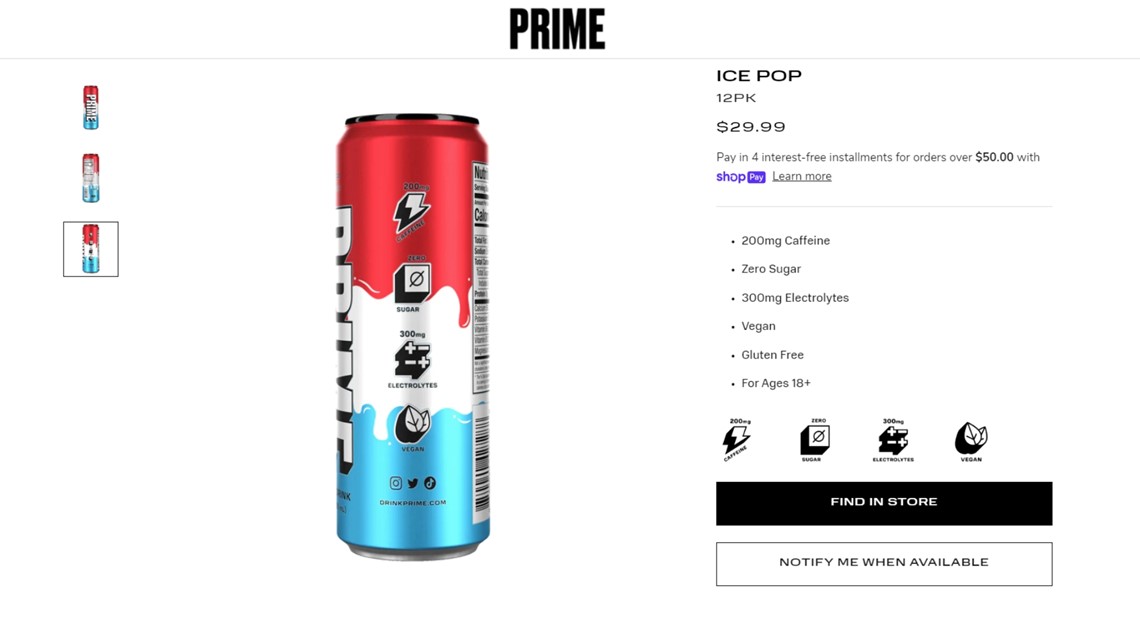
Red Bull shares the nutritional facts of its 8.4-ounce can on its website, stating that it contains 80 milligrams of caffeine, which is about the same amount as one cup of home-brewed coffee. The label on a 12-ounce can of Red Bull, which is slightly larger than the more widespread 8.4-ounce can, says that size contains 114 milligrams of caffeine.

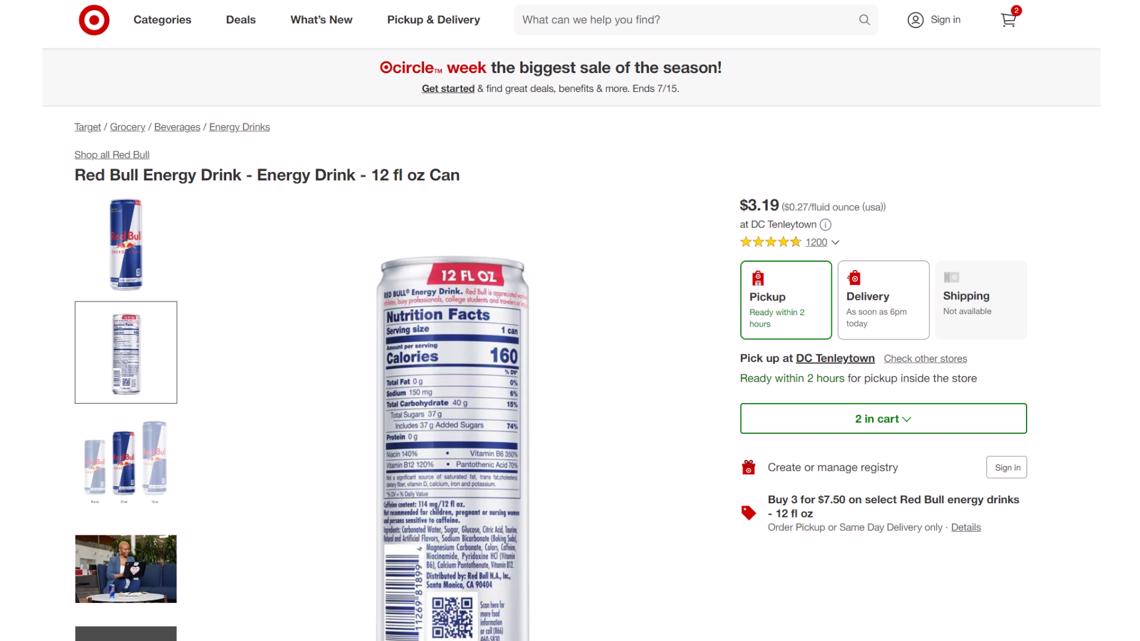
The FDA says up to 400 milligrams of caffeine per day appears to be safe for most healthy adults. That's roughly the amount of caffeine in four cups of brewed coffee, 10 cans of cola or two “energy shot” drinks, according to the Mayo Clinic.
Although the FDA has not set a level for children, the American Academy of Pediatrics discourages the consumption of caffeine and other stimulants by children and adolescents. People taking anti-anxiety medications, people who are pregnant or breastfeeding, and individuals with heart disease or high blood pressure should also avoid caffeine, according to the Cleveland Clinic.
PRIME says on its website that its energy drink is not recommended for children under the age of 18, people who are pregnant or nursing, or individuals who are sensitive to caffeine.
The FDA says that over-consuming caffeine can cause:
- insomnia
- jitters
- anxiousness
- fast heart rate
- upset stomach
- nausea
- headache
- a feeling of unhappiness (dysphoria)
“Pure and highly concentrated caffeine products present a significant public health threat and have contributed to at least two deaths in the United States in the last few years,” the FDA said. The agency released guidance to help protect consumers from these products in 2018.
Prime energy drink is set to be recalled in Canada. On July 12, 2023, Health Canada said the popular energy drink exceeds the regulator's acceptable caffeine limit of 180 milligrams per serving and should not be sold.
The Associated Press contributed to this report.
